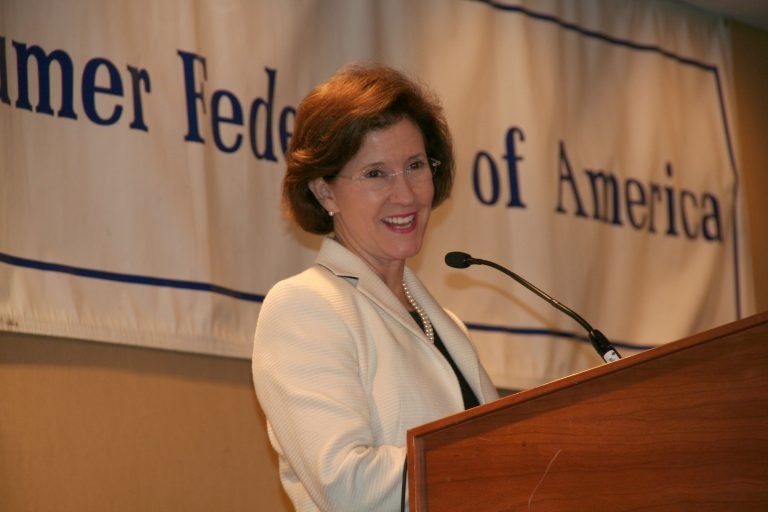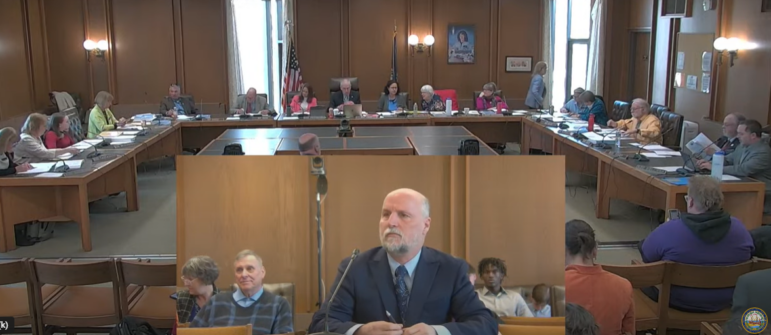 As head of the U.S. Consumer Product Safety Commission until 2013, Inez Tenenbaum spoke out about the public health threat that button batteries pose to small children.
As head of the U.S. Consumer Product Safety Commission until 2013, Inez Tenenbaum spoke out about the public health threat that button batteries pose to small children.
These days Tenenbaum is serving as an expert witness for Dollar Tree Stores, Inc. in connection with a negligence lawsuit against the discount store chain – a case brought by a couple who say their newborn child suffered horrific injuries after swallowing two button batteries.
Lincoln Punch of Sugar Grove, Pa., was six days old when he ingested the batteries in April 2011. He suffered kidney, cardiac and gastrointestinal damage when the batteries lodged in his esophagus and stomach, according to the lawsuit filed his parents. The boy ultimately lost all of his toes, part of his left foot and portions of his fingers on both hands.
Tenenbaum, known as a consumer advocate, was nominated by President Obama to chair the Consumer Product Safety Commission in June 2009. She served in the role until November 2013.
‘These incidents are preventable’
During her tenure the small, silver button batteries found in greeting cards and remote controls emerged as a health threat. A turning point came in 2010, when Dr. Toby Litovitz of the National Capital Poison Center in Washington, D.C., co-authored a study that found the number of young children and senior citizens injured or killed from swallowing button batteries had increased nearly sevenfold since 1985.
“These incidents are preventable and CPSC is working to get ahead of this emerging hazard quickly,” Tenenbaum said in a March 2011 press release about button batteries.
In the ensuing months, Tenenbaum set up a meeting with industry leaders to discuss solutions, and testified before Congress that the commission was “keenly focused” on the problem. In September 2013, Tenenbaumawarded Litovitz a commendation for her work on button batteries. When Tenenbaum’s term ended, her official commission biography touted her “vital” leadership in preventing injuries and deaths from button batteries.
The Punch family’s suit, filed in federal court, alleges the batteries came from a pair of lighted tweezers that Lincoln’s mother, Jennie, had purchased from a Dollar Tree store. According to court records, Lincoln’s parents found the battery compartment of the tweezers open, with two of its three button batteries missing, around the time the boy started acting strangely.
According to court records, it is suspected that one of Lincoln’s older siblings, who were three and five at the time, fed the batteries to him. The batteries were slightly less than a half-inch in diameter.
Denying that the product was defective
The Punch family alleges that Dollar Tree was “negligent and careless” in selling a defective product that was attractive to small children without any warnings about button batteries or instructions about the tweezers’ intended use. The family is also suing the product distributor.
Dollar Tree questions whether the tweezers actually were purchased from one of its stores. It also denies that it has sold any tweezers that were unsafe, defective, intended for use by children or that lacked proper warnings. The company maintains that Lincoln’s injuries were caused by his parents’ negligence.
Tenenbaum’s deposition in the Punch case is scheduled for Sept. 13 in Pittsburgh. Tenenbaum declined to be interviewed about her upcoming testimony, but said in an email to FairWarning, “I will not be testifying about button batteries as a qualified expert in the Punch case. My testimony is regarding whether the lighted tweezers were a regulated product by the CPSC. … Lighted tweezers were not a product before the CPSC during my tenure.”
In another email, Tenenbaum wrote that when she headed the CPSC, she and her office staff “worked with the button battery industry on the safer packaging and warning labels on coin-size, lithium button batteries. These lithium button batteries were causing esophageal burns in children ingesting them. The batteries involved in the Punch case are AG13 alkaline button batteries, which are much smaller that the coin-size lithium batteries. Nothing in my testimony will negate the advocacy and work that I did as Chairman of the CPSC on lithium button batteries.”
Tenenbaum, who called the Punch incident “tragic,” did not answer questions about how much she is being paid or whether she has been retained in any cases involving matters that were before the commission during her time as chair.
‘Revolving door’
On her website, Tenenbaum, a lawyer, advertises herself as “An Established Leader, on State and National Levels, in Consumer Product Safety and Education Policy.” She writes that as a former commission chairman, she “has thorough knowledge of the way that agency operates” and can “evaluate clients’ products to ensure compliance with applicable consumer product safety requirements” and “counsel clients on the CPSC’s regulatory process,” among other things.
Sally Greenberg, executive director of the National Consumers League, said she wasn’t surprised to hear that Tenenbaum now is working as a defense witness in a product liability case.
“There’s a revolving door in Washington,” said Greenberg, who added that she liked Tenenbaum and thought she did a “nice job” as head of the CPSC. Greenberg said she didn’t want to speculate on why Tenenbaum took the case, but noted that sometimes former regulators can “bring a sense of reason” to embattled industries.
“Sometimes, they do totally sell out,” Greenberg said. But “not necessarily.”
Whatever the circumstances, Lisa Gilbert, director of the Congress Watch division of the advocacy group Public Citizen, said Tenenbaum’s work as an expert witness “looks funny. It leaves an unsavory taste in your mouth.”





